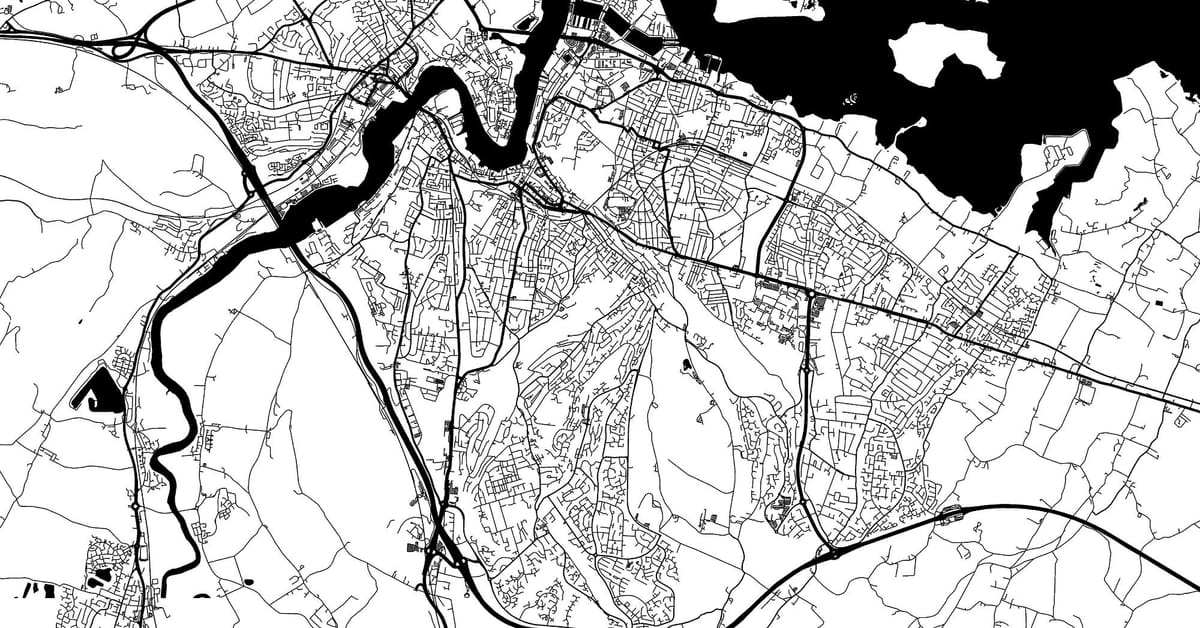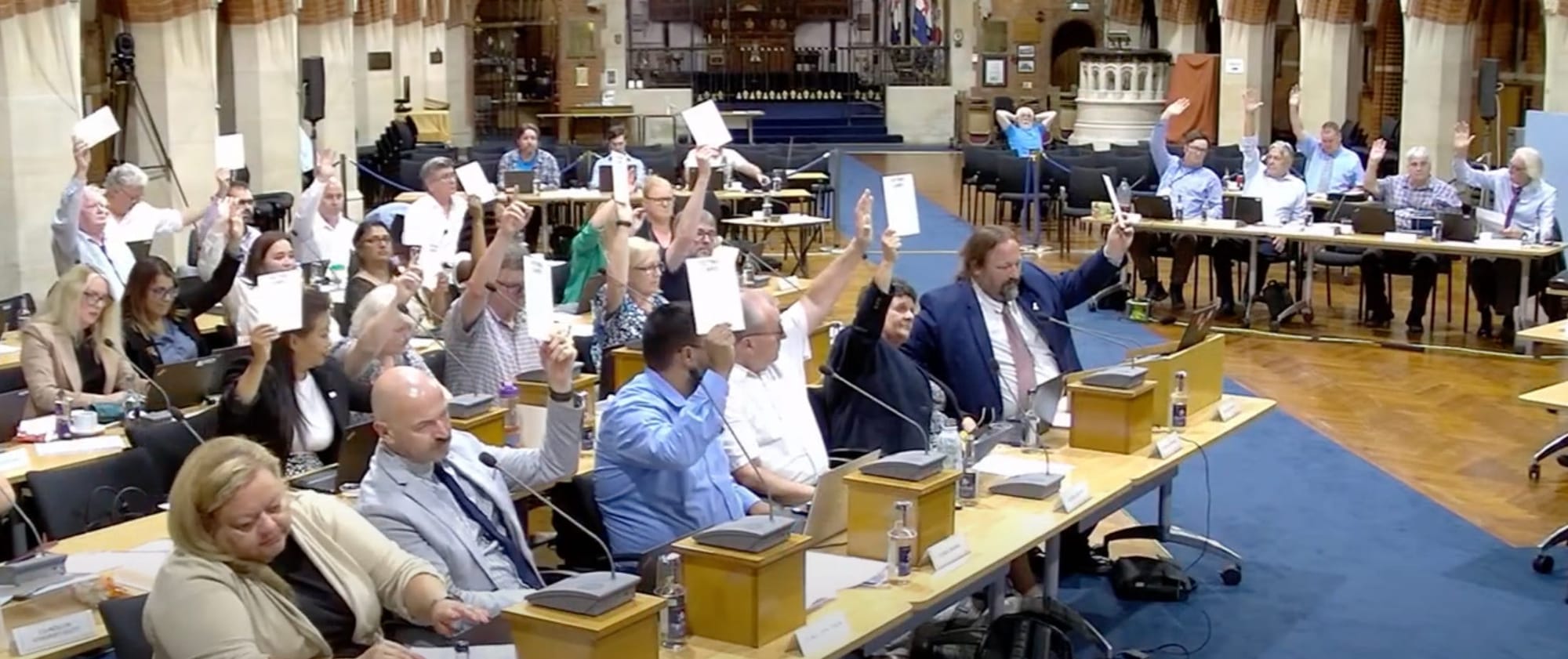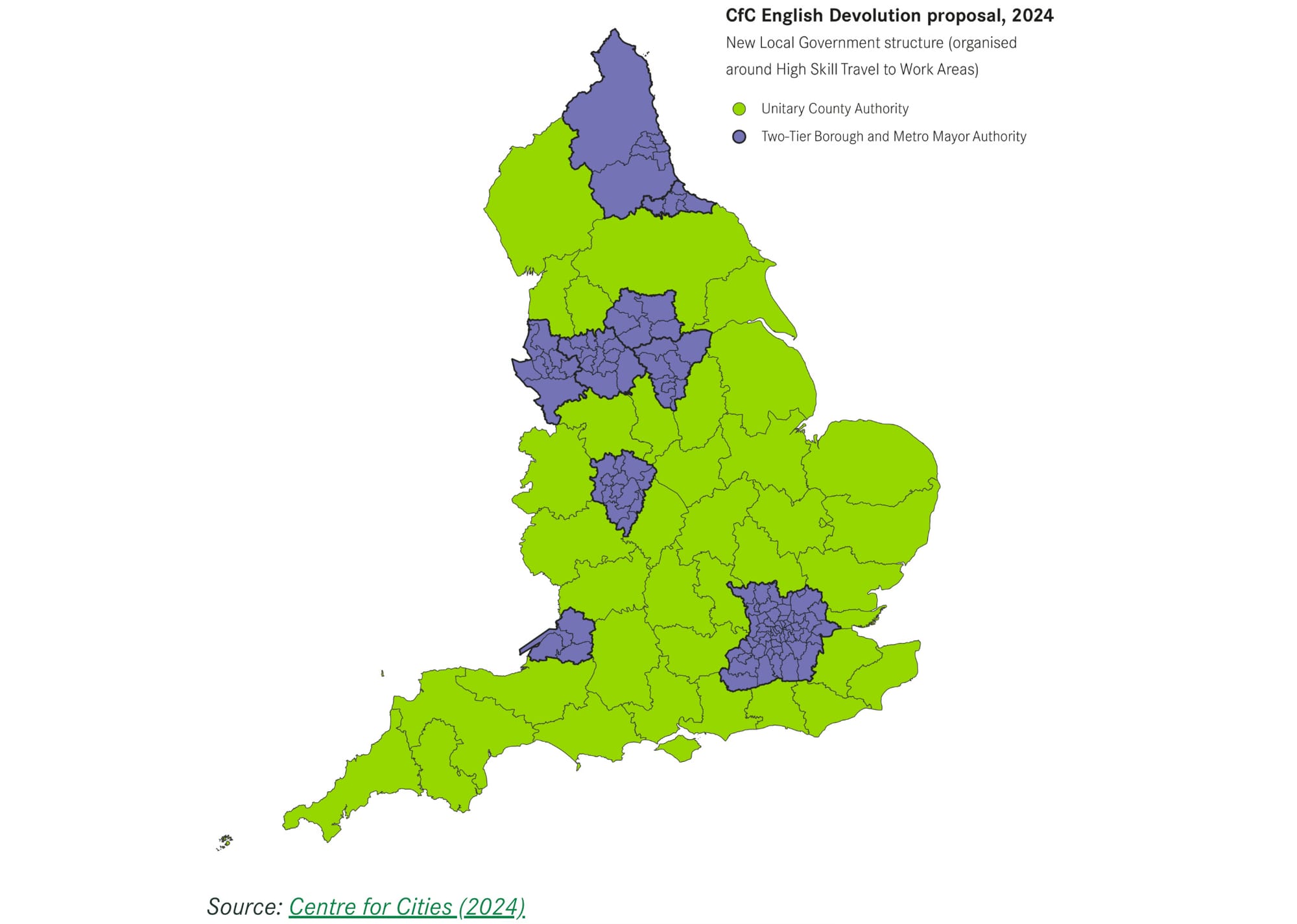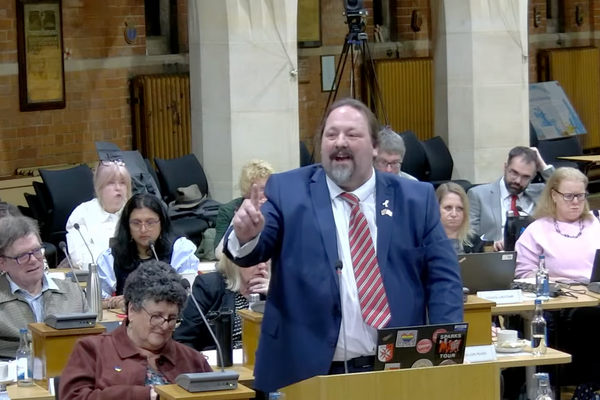The future of Medway
Council budget funding changes, local government reforms, and the possibility that Medway won't even exist in a few years

Medway is a relatively new place, at least in terms of politics, having only been established as a council in 1998. Now, less than three decades later, it is at a crossroads where it might not even be around in a few years. Before that though, it is on a financial precipice that last week’s budget may or may not help while also facing imminent reforms. This edition is perhaps a bit more wonkish than usual, but our in brief section at the end features some lighter news like a, er, bomb scare in Rochester and Medway Hospital’s endoscopy backlog… oh. We’ll just go back to watching live US election coverage to brighten the mood instead.
Act I: The budget might help Medway’s money woes, but it probably won’t
Last week, we saw the first budget of the new Labour government. While it was a fascinating, carefully balanced exercise on several levels, we mainly care about one thing here at Local Authority: What does it mean for Medway Council’s finances?
At the top of the pile, the Chancellor announced £1.3bn in additional funding for local government (for everyone, not just Medway1). This represents a 3.2% in total core spending power in real terms. While this will certainly be welcome for a council like Medway, it is unlikely to close the budget gap the authority was already facing.
Some rough calculations suggest if the 3.2% applied to Medway, it would represent about an extra £14m to the council’s spending power for the coming financial year. Unfortunately, Medway is currently projecting a budget shortfall of £45m in the same period.

Still, some other positive news might be buried within the budget for local councils. Additional funding for Special Educational Needs, the Household Support Fund, Bus Service Improvement Plans, road maintenance support, and homelessness relief offer around £4.5bn in additional funding. However, how much of this might make it to Medway is unclear.
Other budget factors that might make a difference to Medway:
- Private schools are set to lose their charitable business rates status, which reduces their bill by 80%. Given the number and scale of private schools in Rochester, Medway Council officers are likely rubbing their hands in glee at the windfall this could offer.
- The whole system of local government funding is planned for reform by 2026/27, and the government seems intent on offering support for struggling councils to get to that point.
- The increase in National Insurance employer contributions from 13.8% to 15% could rather add to the council wage bill, wiping out some of the above additional funding.
- The same is true for the increase in the minimum wage.
Even with the additional funding available, the Institute for Fiscal Studies analysis identified that funding is still 19% lower per resident than in 2010.
Medway Council will take some time to crunch the numbers in full to see their financial position. Given the state of things in recent years, it’s unlikely things will be much worse, but whether they will be much better is another matter entirely.
Act II: Local government reform may make Medway run better, but it probably won’t
Alongside changes to local government finance, the new Labour government also seems keen on changing how councils work.
Angela Rayner, Secretary of State for Housing, Communities and Local Government, recently spoke at the Local Government Association Conference and set out a series of potential reforms that might improve how councils do business. Or maybe not.

The biggest item on the agenda is the one that ties into the previous item: lower interest rates for councils that need to borrow money to stay afloat. Of course, councils not having to borrow money to stay afloat would be even better, but that’s a bit too radical of an idea.
For politics nerds like us, reforming council meetings and reintroducing digital meetings like we saw at the height of covid is a positive move. The pandemic proved that council business could be conducted online if necessary, and giving councillors the option to participate in meetings remotely is positive for those with caring responsibilities or health issues. It’s also good for - as we saw during the pandemic - any councillors who might be feeling tired and emotional to take part in proceedings.
Elsewhere, many of the reforms raised by Rayner are fairly vague and appear to offer little at first glance. The proposal for councillors’ home addresses to be anonymous is reasonable in the political environment, but the power to withhold this data already existed, as many Medway councillors have discovered. Talk of ‘strengthening councillor conduct’ could be positive, but it's difficult to judge with no further detail available.
Act III: Medway might exist a decade from now, but it probably won’t
Given that Medway is one of the youngest councils in the country, it might seem slightly odd to talk about it on an existential level, but that seems to be where we are.
Medway was formed in 1998 as the government of the day moved toward unitary authorities rather than the multi-tier county councils of the past. While unitaries have popped up across the country, usually in large urban areas or in the wake of counties that have gone bankrupt, they by no means became standard.
As a result, Medway sits alone in Kent, with the rest of the county retaining Kent County Council and 12 district councils underneath it. It’s hard to gauge whether or not being a unitary has been good for Medway. We’d tend to err toward a largely positive result, allowing more simple local control, but your mileage may vary.
Now, with Labour back in power and devolution back on the agenda, there appears to be a desire to simplify local government structures once again, with all signs pointing toward Medway being gobbled up into something larger.
The previous Medway Council meeting revealed that the government had been talking to Medway Council and Kent County Council about setting up a Kent and Medway Combined Authority. This would largely keep Medway as it is but would add an extra tier above for the wider region, as well - most excitingly - potentially a directly elected Mayor of Kent.
It is unclear at this point how much support these plans might have, though most parties agree that the additional powers that come for local areas under devolution deals would be welcome.
This week, a new proposal was put forward by the Centre for Cities think tank, who are ‘dedicated to improving the economies of the UK’s largest cities and towns.’ It presents an interesting approach that would see Medway merge with a number of west Kent councils while leaving the ones to the east to create their own.

Here at Local Authority Towers, the initial reaction to this was ridicule, but the more we’ve thought about it, the more it might be the sensible middle ground.
The plan would see Sevenoaks and Dartford absorbed into the London area, which feels somewhat logical, even if it’s unlikely to be popular. That would leave a combined west Kent council consisting of Medway, Swale, Gravesham, Maidstone, Tonbridge and Malling, and Tunbridge Wells. The remainder of Kent (Canterbury, Thanet, Ashford, Folkestone & Hythe, and Dover) would form their own separate authority.
In their Economy First: A Pragmatic English Devolution White Paper, they set out their somewhat unique approach for mapping out the proposed areas, primarily using economic geography based on the commuting areas of higher skilled workers:
Competing definitions of economic geography and competing considerations for devolution can make it appear difficult to develop a clear preferred geography.
High Skill Travel to Work Areas (HS-TTWAs) – essentially the commuting areas of higher skilled workers – are the best geography for devolution to aim towards, for two key reasons.
First, HS-TTWAs are larger than “regular” Travel to Work Areas, and so include a mix of affluent and poorer neighbourhoods, making it possible for them to absorb fiscal devolution without increasing inequality.
Second, HS-TTWAs are small enough that large cities and counties with urban economies are consistently contained within distinct HS-TTWAs.
They capture the geography that housing and labour markets operate over and are a sensible scale for local economic policy, such that improvements in planning, transport, and skills have the best possible chance of increasing local and national growth.
Of course, all of this is very wonkish. Still, if we are to accept that an authority the size of Medway isn’t sustainable in the long term, there is a logic in grouping Medway with the relatively nearby districts that we have closer ties to rather than distant and remote lands like Folkestone & Hythe.
The Centre for Cities proposal is just one of many that will likely be flying around local government circles, and it’s not clear exactly where the new government will likely land on this.
What does seem certain, though, is that change is on the horizon. Whether that’s Medway forming a new Combined Authority with Kent, a new west Kent unitary authority, or something completely different, it seems increasingly likely that Medway as we know it now won’t exist a few years from now.
In brief
🏥 The former Debenhams building in Chatham could become an NHS elective care centre. This would see the lower floors used for planned operations to ease the burden on Medway Hospital, with the top floors converted to residential.
🏪 B&M have withdrawn their application for an alcohol licence at their new Gillingham store after objections were raised. The former Wilko unit is in an area where alcohol-related crime is already a problem.
💣 Bomb disposal teams were called to Rochester last week after suspicious objects were found on the Rochester Riverside development. The World War 2 items were declared non-explosive and removed from the site.
🏥 Medway Hospital has applied to build a temporary endoscopy unit in one of its car parks. The hospital has a backlog of 4,500 procedures and believes the new unit will get this cleared in a year.
🏫 Three single-sex grammar schools in Medway are set to become co-educational from September 2026. The mixed intake at Chatham Grammar, Fort Pitt Grammar School, and Holcombe Grammar School will help balance the number of secondary places across Medway.
🚓 Kent Police have requested the licence of the Woodland Tavern in Gillingham be reviewed. They have done so on the basis that the premises is associated with serious crime.
🏗️ Work has begun on the 800-home development at East Hill in the Capstone Valley. The first phase will see 91 homes, a play area, open spaces, and a new roundabout constructed to connect the new builds to North Dane Way.
🗣️ Rochester and Labour MP Lauren Edwards has written for LabourList on how to win in the international age of right-wing populism. It involves building a system ‘for the many and not the few’, apparently.
🗳️ The Hoo St Werburgh and Chattenden Neighbourhood Plan referendum is being held this Thursday (7 Nov). Voters can choose whether or not to adopt the plan that would influence future development in their area.
More Authority
With Medway River Lit in full swing, on Sunday we sat down with one of its founders, playwright and graphic novelist Sam Hall, about her work and telling stories of the Medway Towns.

We’ve got a big week of content lined up:
- Wednesday (paid supporters only): An in-depth look at Ascend, one of Medway Council’s landmark regeneration projects for the Pentagon in Chatham.
- Thursday (paid supporters only): The latest goings on at Gillingham FC with our Gills columnist Ben Hopkins.
- Friday: Our regular arts, culture, and lifestyle briefing edition.
- Sunday (paid supporters only): Our weekend interview is with Cllr Andrew Lawrence, Shadow Cabinet Member for Regeneration, Community, and Housing.
Footnotes
If you enjoy Local Authority, please share it with your friends, family, associates, and enemies. We have no meaningful marketing budget, so we rely on word of mouth from our readers to find new readers. You can even get some sweet rewards for sending new readers our way. Details here.
Music that soundtracked the creation of this edition: A Good Kind of Nervous by The Lucksmiths, Gentrified Chicken by The Muslims, and Hello Sadness by Los Campesinos!
Imagine if Medway had an extra £1.3bn to play with. That tram dream could finally become a reality. ↩






